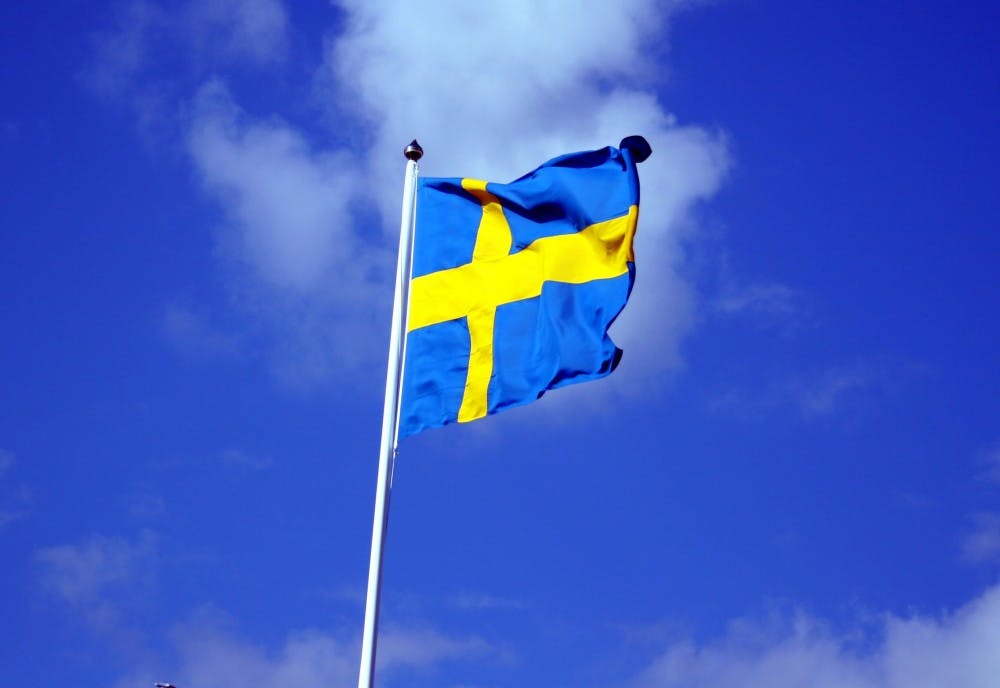Whether it be on “Tucker Carlson Tonight” or during a microeconomics class — whenever the issue of socialism is brought up, we tend to reference Nordic countries like Sweden, Denmark and Norway. And it is during these discussions that I hear an onslaught of fallacies projected about Sweden — most commonly, that it is a communist welfare state with exorbitant tax rates. However, by slandering Sweden as socialist, you are only revealing your own incorrect understanding of socialism.
Before we begin to discuss Sweden specifically, let’s define socialism. According to Merriam Webster, socialism is “any of various economic and political theories advocating collective or governmental ownership and administration of the means of production and distribution of goods.”
Does Sweden have high income and payroll tax rates? Yes. Does the Swedish government offer its citizens welfare benefits that cost the state billions of dollars? Yes. Do either of these two facts qualify Sweden as a socialist country? Absolutely not. To be perfectly clear, Sweden’s status as a welfare state does not make it socialist.
Uninformed Americans — predominantly on the political right — will argue that Sweden’s “socialist” policies stifle economic growth and entrepreneurship. In reality, Sweden’s generous government benefits have the opposite effect. Its social safety net helps entrepreneurs feel financially secure to take risks. In Sweden, university tuition is free, and students can acquire loans to cover living expenses, which allows anyone to pursue higher education regardless of income status. There is substantial government intervention in healthcare as well, and childcare is heavily subsidized. In Sweden, citizens know that they can take entrepreneurial risks and their necessities will still be covered.
Meanwhile, many on the left will argue that all of the above justifies adopting wholesale socialist principles in the U.S. However, as economist Johan Norberg says, “I don't think the American Left knows that Sweden is the country of pension reform, school vouchers, free trade, low corporate taxes and no taxes on property, gifts and inheritance.” In other words, Sweden follows free-market economic principles in addition to offering a robust social safety net.
Sweden does not have minimum wage laws. According to some estimates, “Stockholm produces the second-highest number of billion-dollar tech companies per capita, after Silicon Valley.” Furthermore, according to the Organization for Economic Cooperation and Development, there are 20 start-ups per 1,000 employees in Sweden — compared to just 5 in the United States. Sweden’s corporate tax rate of 21.4 percent is only slightly higher than that of the U.S. which currently stands at 21 percent. However, it is important to note that before the passage of the Tax Cuts and Jobs Act in 2017, the US corporate tax rate stood at 35 percent. Additionally, Forbes ranked Sweden as the second-best country for business, while the U.S. is ranked only 17th. At the end of the day, if by “socialism” we mean Sweden’s free-market welfare state, then by all relevant measures “socialism” should be considered an effective economic system.
The reason why it is so important to be precise with our definitions is that true socialism is terrible. Affiliating modern-day Sweden with Venezuela or Soviet-era Russia unfairly attempts to tarnish the reputation of what is one of the most successful governments in the world. According to the United Nations Refugee Agency, in 2018, an average of 5,000 people fled Venezuela every day as a result of the country’s deteriorating economic and political stability. Socialist fiscal policies including price and currency controls have led to widespread poverty with almost 90 percent of Venezuelans now living below the poverty line. Similarly, the forced collectivization of agriculture under Joseph Stalin in the USSR contributed to mass famine, ultimately resulting in almost five million deaths. Clearly, past and present events lend us to view socialism as both repressive and threatening to public welfare.
My parents moved from Sweden to the United States 25 years ago. Neither came from privileged backgrounds. My mother was not encouraged to pursue higher education but instead was expected to work at the family-owned restaurant. My father, despite having the support of his parents, certainly did not have the financial means to pay tuition. And yet, both received undergraduate degrees from Swedish universities. This dramatic social mobility that my parents experienced is only possible because of the generous welfare policies provided by the Swedish government.
I’m not saying you have to like Sweden. I’m not saying you have to support its governmental policies. I’m not asking you to abandon your libertarian, don’t-tread-on-me, good old-fashioned American principles. But to speak of Sweden as socialist not only comes across as ignorant, but it also does an injustice to all those who have benefited from the same policies which you are attacking.
Esther Eriksson von Allmen is a Viewpoint Writer for The Cavalier Daily. She can be reached at opinion@cavalierdaily.com.







